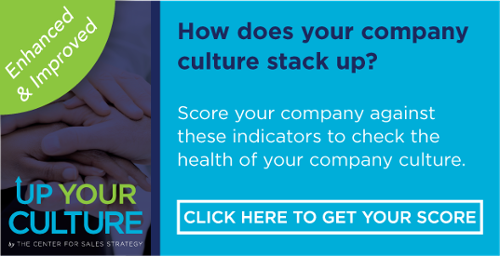
Researchers have learned that companies with the highest levels of engagement have four things in common: Shared Mission, People Development, Valued Voice, and Earned Trust. When a company commits to improving in these areas, they simultaneously lift—or elevate—their levels of employee engagement.
When your people are engaged, they fully activate their talents and give their very best. Consistent employee engagement leads to increased revenue, employee retention, and customer success. In previous posts, we discussed two Engagement Elevators, Shared Mission and People Development. This post digs into the power of Valued Voice.
Elevator Three: Valued Voice
 Engagement Elevator number three, Valued Voice, sets the stage for employees to trust their coworkers and leaders enough to participate in open, two-way communication. Keeping that basic definition in mind, let’s take a deeper dive on how you can use this to improve the engagement on your own team.
Engagement Elevator number three, Valued Voice, sets the stage for employees to trust their coworkers and leaders enough to participate in open, two-way communication. Keeping that basic definition in mind, let’s take a deeper dive on how you can use this to improve the engagement on your own team.
Organizations with preeminent company cultures demonstrate genuine respect for the thoughts and opinions of their employees. Their leaders value the unique perspective of their people and actively seek to understand their views. The very best strike a healthy balance between listening and leading, effectively making their people feel valued while also making decisions that drive the team forward. You may have heard this expressed as “everyone has a voice, not a vote.”
Companies with High Employee Engagement
Engaging leaders find that when they consistently listen to their employees and value their opinions, their people will feel increasingly more comfortable opening up to them. Strong bonds of trust form, and because the employees know their manager cares about them, they feel more secure sharing information, ideas, and concerns they may not have revealed otherwise. This level of trust allows companies to gain insight into potential obstacles ahead to avoid them and also generate a steady flow of innovative ideas and improvements.
These exemplary companies don’t just listen, though. They also find great value in sharing information back with their people in return. They keep their employees informed and establish a hallmark of transparency. As a result, employees feel as though they are on the inside, part of the solution, and even a partner in the success.
In more than one study, including a recent survey conducted by TinyPulse, employees have pointed to company transparency as the number one factor leading to workplace happiness. As it is in any relationship we form, transparency fosters trust and happiness. When an organization consistently shares information on the vision, strategies, and current events, everyone develops a deeper connection. 
Company Example: Buffer
The company Buffer is well-known for its creation of a social media management tool is also known for practicing radical transparency. The company shares information about their sales numbers, salaries, and revenue use, not just to their employees—but the entire world. This strategic move is bold, but it reinforces Buffer’s brand as being honest, helpful, and straightforward.
How Does Your Company Measure Up?
- Does your organization seek the opinions of employees and demonstrate a sincere desire to listen?
- Do you consistently share information back with your people about your company mission, vision and goals?
- Do you provide a level of transparency that makes employees feel deeply connected to the business and a partner in the success?
Workplace transparency helps set the stage for employee engagement — the essential element of a positive and productive workplace culture. Employee recognition is more than handing out gold stars. The most effective recognition helps employees know how their contributions and opinions make a difference in your overall company mission.








Leave a Comment